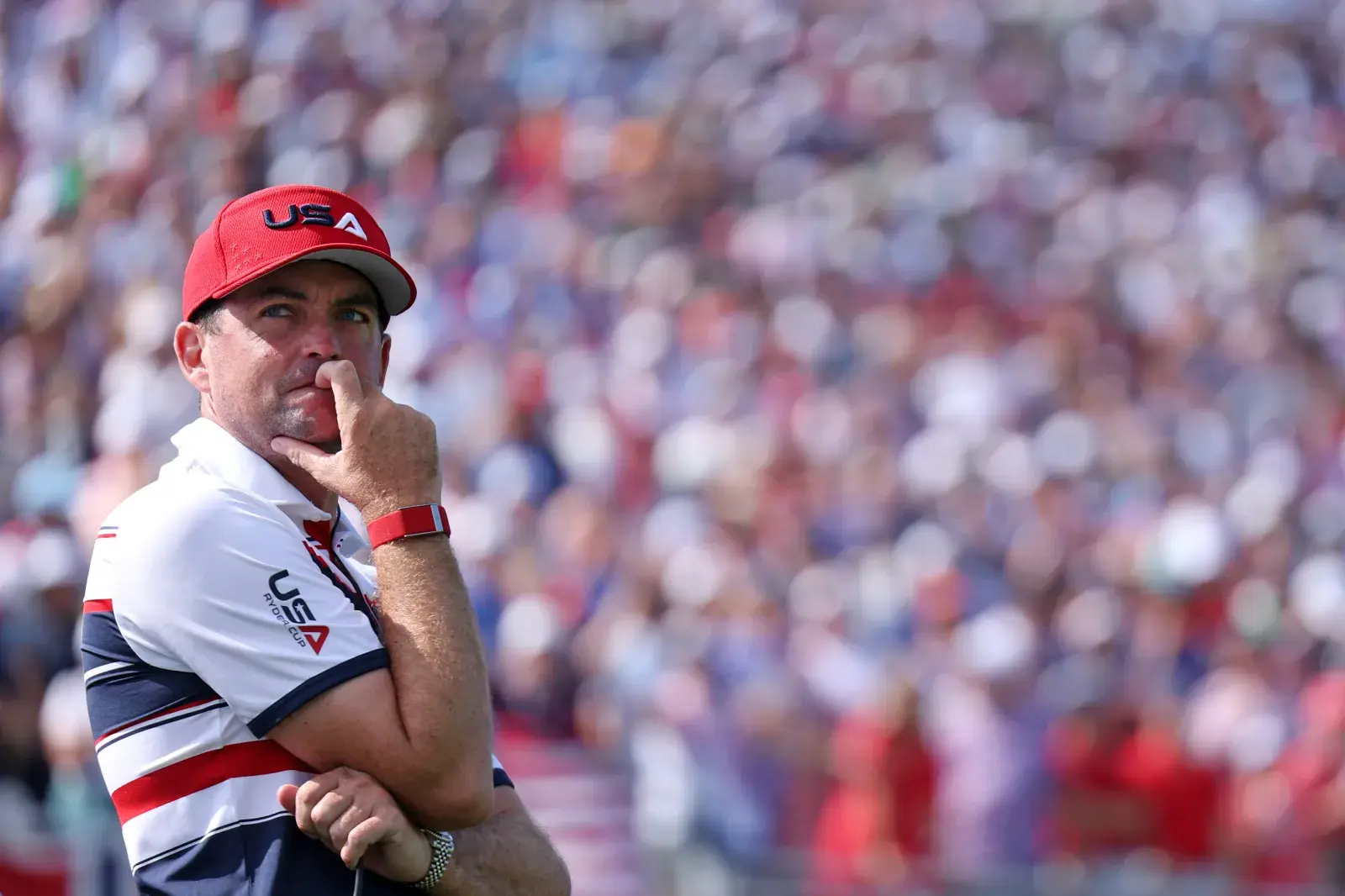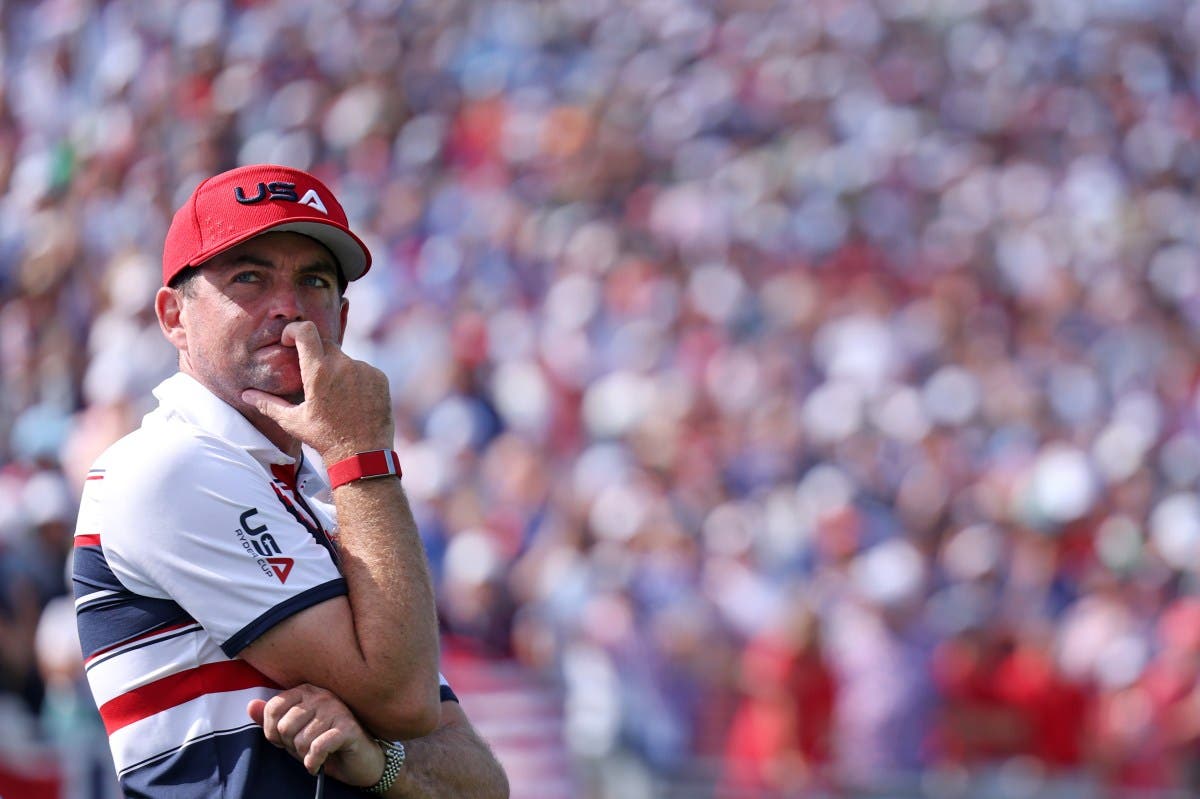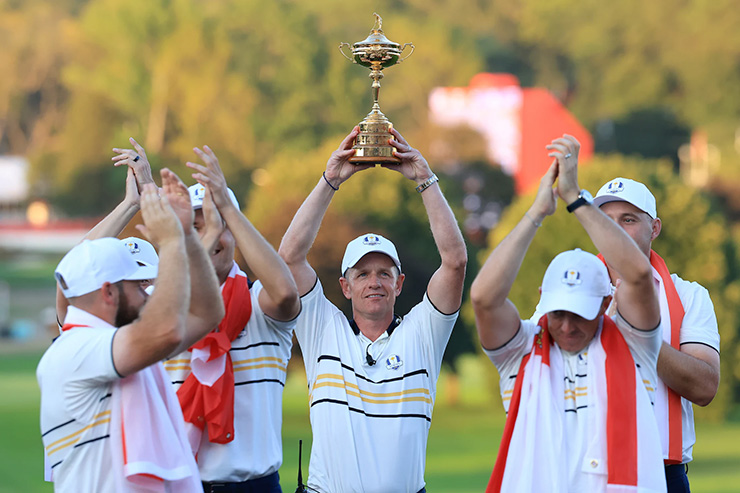Bethpage Black was already boiling with tension after Viktor Hovland’s sudden withdrawal on Saturday due to a neck injury.
But the seven-time PGA Tour winner’s withdrawal from the Sunday singles triggered a rarely used Ryder Cup rule that awarded a half-point to both teams and benched Harris English, his American opponent.
Keegan Bradley definitely didn’t seem pleased with the change and called the rule “strange” on Sunday, after Cameron Young opened with a win at hole No. 1. The 39-year-old also praised English for taking the outcome positively, as captured by NBC’s cameras.

However, after the 15-13 loss on home soil, he didn’t hold back.
“Yeah, it has to change,” Bradley stated in Sunday’s post-match press conference. “I have a few ideas, but I’m not going to tell you right now. I mean, the rule has to change. I think it’s obvious to everybody in the sports world, in this room. Nothing against Viktor. But that rule needs to change by the next Ryder Cup.”
The rule was introduced back in 1979 at The Greenbrier, where both Mark James (Europe) and Gil Morgan (USA) were injured during the tournament and had only been enacted four times in Ryder Cup history before Sunday.
It requires captains to submit a name in a sealed envelope before singles play begins. If a player withdraws, the opponent listed in the envelope also sits out, and the match is declared halved. This time, it was English who never got to tee off on Day 3, and both teams split the point that favored Team Europe later in the day with a win.
The rule’s most infamous use came in 1991, when American Steve Pate was injured in a car accident, which was also mentioned by Luke Donald when asked about his thoughts on Bradley’s statements.
European captain Bernard Gallacher had to pull David Gilford from the lineup, resulting in a half-point split. Ironically, Team USA benefited from the rule then and went on to win.
This time, however, the rule felt like a roadblock to momentum. Even golf influencer Paige Spiranac voiced what many fans were thinking.
“The rule was dumb 30 years ago. The rule is dumb now,” she tweeted on Sunday. “The rule is dumb regardless of which teams it helps. The rule is dumb and should be changed.”
Loading twitter content…
As the dust settles on Bethpage, Bradley’s call for ‘change’ may spark a broader conversation with the next Ryder Cup set for Adare Manor in 2027.
What do you think about the situation? Let us know in the comments section below!
More Golf: Luke Donald Shares MRI Update on Viktor Hovland’s Neck Injury







